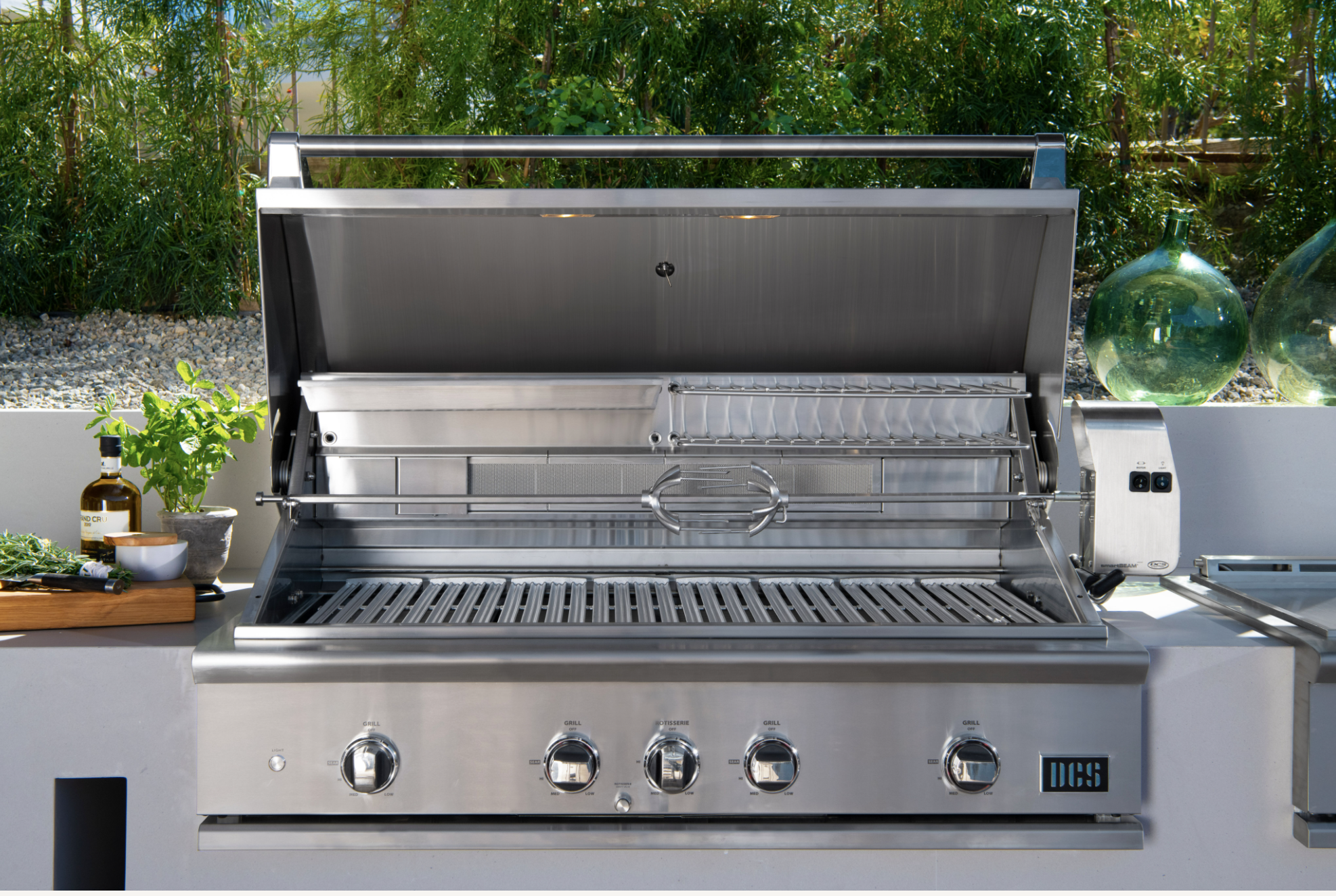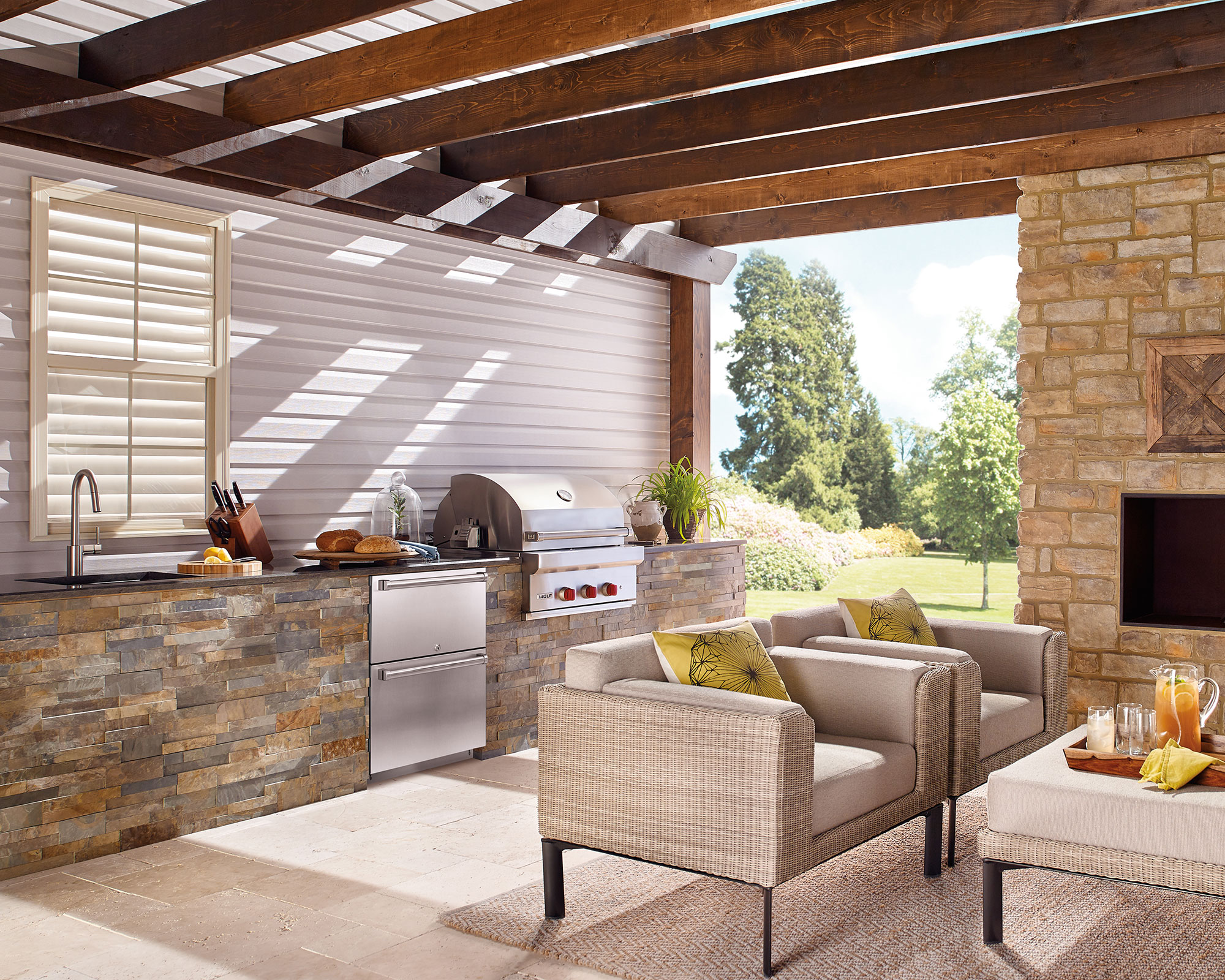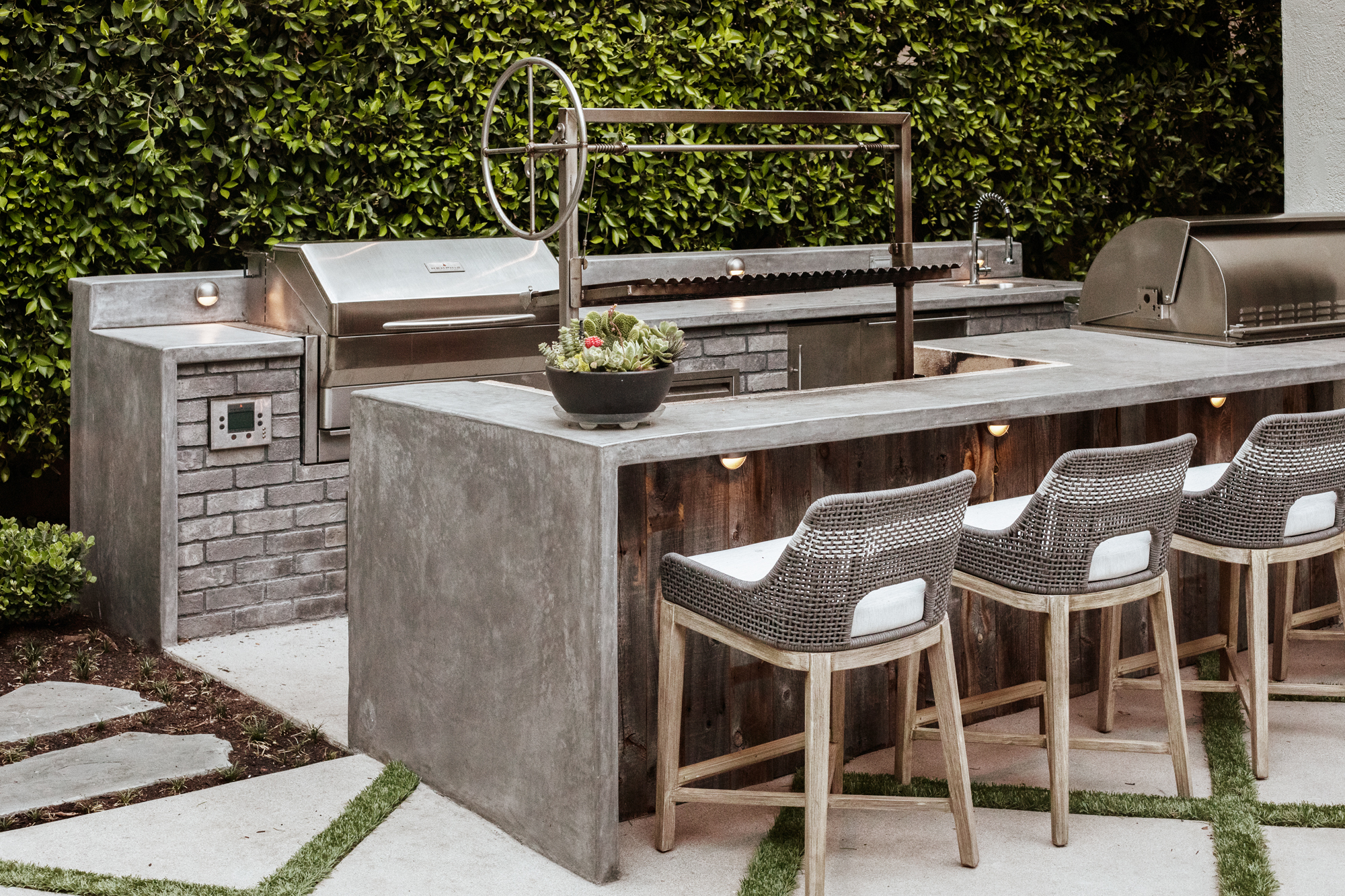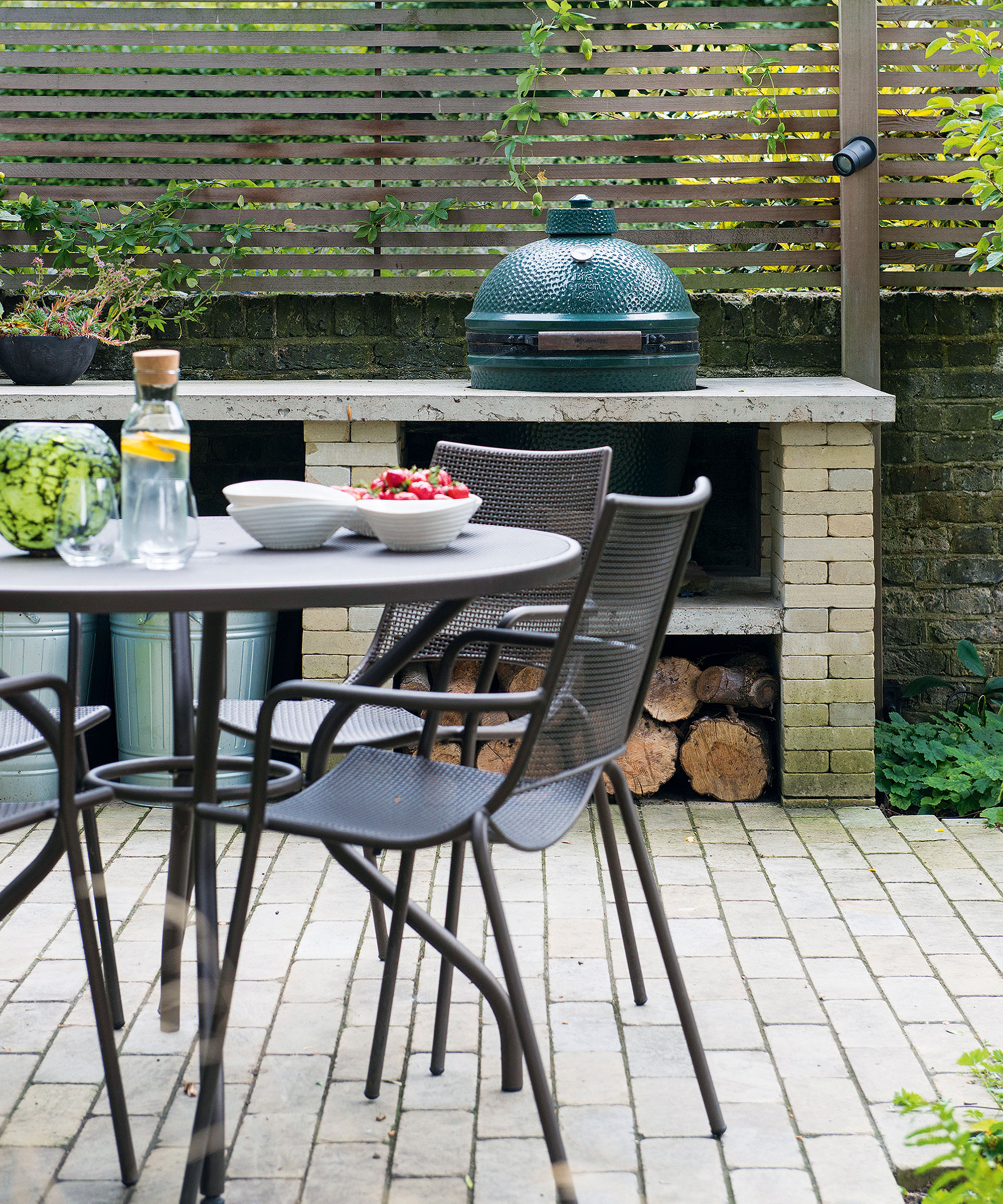How to clean a grill – for maximum flavor and good hygiene
Discover how to clean a grill each time it’s used and when it’s time for a deep clean


Being confident about how to clean a grill properly will prolong its life, and help make outdoor cooking a safe, tasty and stress-free way to feed family and friends.
The best grills and best gas grills need care and maintenance to deliver delicious burgers, steak, kebabs, chicken, fish, veggies and more time after time, and that involves cleaning correctly both before and after use, as well as deep cleaning every so often, too.
A pristine grill is an important factor in grilling safely and avoiding foodborne illness, and will ensure everything you serve up tastes as delicious as it should, and this is the lowdown on how to clean a grill.
How to clean a grill
There are two categories of grill cleaning: regular cleaning, and more thorough deep cleans that should be done a few times a season. Be aware that for optimal food safety, the Centers for Disease Control and Prevention (CDC) recommends, ‘Wash work surfaces, utensils, and the grill before and after cooking.’
Here, we cover both how to clean a grill each time you use it and how to deep clean it.
What are the best tools for cleaning a grill?
There are all manner of weird and wonderful tools aimed at grill cleaning but, whatever the state of your grate, you can’t go wrong with a long-handled wire brush. Choose one with stainless steel bristles for serious scrubbing action but be careful to avoid any surfaces besides the grill bars as wire brushes will scratch enameled finishes. Use a brass-bristle brush on grills with porcelain-coated racks.
For the best results, keep two brushes on hand: a large brush and then a smaller detailing version to get into nooks and crannies.
Design expertise in your inbox – from inspiring decorating ideas and beautiful celebrity homes to practical gardening advice and shopping round-ups.
You should brush your grill right after every use. ‘You will be able to clean with a wire brush much more efficiently if you do it while the grill is still warm – just make sure there are no flames,’ says Catherine Moss of The Indian Fire Bowl Company.
Note that is essential to check the grill’s surface before cooking again if you use a wire bristle brush for cleaning. ‘Wire bristles from grill cleaning brushes may dislodge and stick into food on the grill,’ cautions the CDC.
Other less vital but very useful additions to your grill cleaning kit include rubber gloves, a large bucket or bowl and lint-free cloths.

How do I deep clean a barbecue grill?
Despite all best intentions to put it away sparkling clean at the end of the year, the sight of a greasy, blackened grill is all too familiar. Even if you do manage a scrub-down pre-storage, after languishing unused for several months, a deep clean is always a good idea.
Similarly to how to clean an oven, you can start by turning your grill on high to help any leftover bits burn off. Then, scraping off the worst of the debris with your wire brush, using any flat surfaced implement, such as a sturdy spatula, garden trowel or regular dinner knife to tackle stubborn areas
Next, soaking the grate in very hot soapy water for a couple of hours to loosen up leftover grease and grime. If your grill is on the large side, you may need to do it in two halves if you don’t have a container or sink big enough. Then it’s time to apply some elbow-grease and put the wire brush to work.
If you’re still not satisfied, try a specialist grease-busting product, taking care to rinse thoroughly afterwards. You can also try cleaning your grill with beer, too. Finally make sure your barbecue grill is completely dry and buffed to a shine using a lint-free cloth.

What about the base and firebox?
While you won't need to clean out your grill's firebox with each use, it's a good idea to tackle this chore a few times a year when you deep clean. Use a shop vac to clear out leftover debris, and scrub the inside with soap and water.
For charcoal grills: wait until the ash is cool and either tip or shovel it into a bucket for disposal – it makes a great additive for compost heaps if you have one. Then wipe out the remaining dust or use an outdoor vacuum before cleaning with damp, soapy water.
As for the exterior, outdoor kitchens with gas grills generally require little more than a wipe down with a damp, soapy cloth. Use dish soap or an all-purpose degreaser to blitz grease splatters.

What are the best homemade cleaning products for a grill?
Chemical-based cleaners are sometimes the only way to get rid of ground-on grease. However, there are a few natural homemade solutions that are really effective, especially when applied soon after you’ve finished grilling for the day.
Natural ingredients are safer for any surface that’s designed to be cooked on, and they are safer for the environment, too. A poultice made from equal parts baking soda and vinegar can be rubbed onto the rack and left to soak for 10 to 20 minutes before scrubbing with your wire brush and rinsing clean.
Another popular cleaning tip is to cut a white onion in half and rub the flat surface onto a still-hot grill – stick it with a BBQ fork to protect your hands from residual heat. A cut lemon will have a similar effect on flat, steel hotplates, lifting charred-on food and providing an impressive shine.
Can I clean my grill in the dishwasher?
It depends on a few factors. Firstly, the size of your BBQ's racks and the size of your dishwasher. If it fits and the spray arm has clearance to rotate, there’s no reason a stainless-steel or chrome-plated grate can’t be washed in the dishwasher. Do make sure any major grease is wiped off with paper towels and disposed of correctly to keep it from blocking your dishwasher’s pipes.
As for cast iron racks (including enameled cast iron)? ‘Only clean cast iron by hand. Never put it in the dishwasher!’ emphasize the experts at Weber. Put racks like this in the dishwasher and the seasoning will wash off and steam may cause rust.
Aluminum racks that are not anodized may turn black if washed in the dishwasher. If in doubt check your grill’s user manual for details.
How can I keep my grill clean throughout the season?
Our best advice for steering clean of extensive cleaning is to use your grill to clean itself! When you’re done cooking, simply turn it up to its highest heat (or pile on the charcoal) and leave for 15 minutes. Any lingering food and grease will carbonize in the high temperatures. Once the 15 minutes is up, turn the gas off and make sure any flames are out, then pop on some water-soaked newspaper, close the lid and give it a 10-minute steam clean. Done regularly, you’ll never need to deep-clean again.
Linda graduated from university with a First in Journalism, Film and Broadcasting. Her career began on a trade title for the kitchen and bathroom industry, and she has worked for Homes & Gardens, and sister-brands Livingetc, Country Homes & Interiors and Ideal Home, since 2006, covering interiors topics, though kitchens and bathrooms are her specialism.
